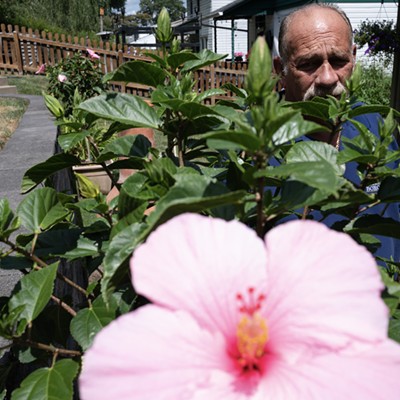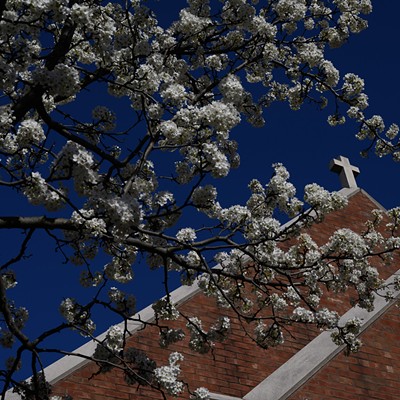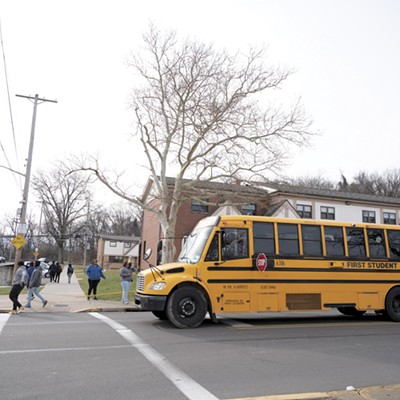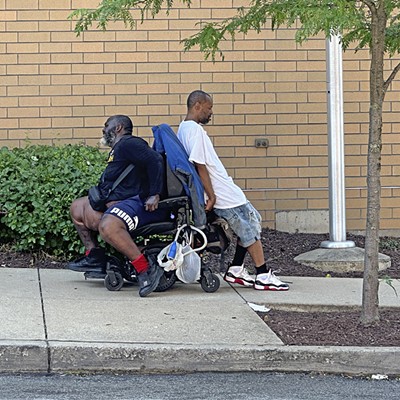
Today, the Hill Community Development Corporation, with its slogan “Your front door to the Hill District,” is one organization that aims to build upon that African American heritage through its programming and initiatives.
The neighborhood has gone through its transitions since the 1950s, after the construction of the Civic Arena, which would later get torn down to make way for the nearby PPG Paints Arena, the current home stadium for the Pittsburgh Penguins. To build this arena, Urban Redevelopment Authority, an economic agency, used eminent domain to tear down 8,000 predominately Black-owned homes.
The displacement of those Black residents, businesses, and churches dismantled the Lower Hill District and fundamentally changed the course of development for the neighborhood for decades afterward, with effects still felt in the Hill District today.
“The neighborhood was disrupted for the Civic Arena. PPG Paints Arena came in the years later, but in the late 1950s, it was disrupted for the Civic Arena. It was supposed to be the heart of the cultural corridor, the cultural center of the region, but that’s all they ever built. That and a parking lot,” says president and chief executive officer Marimba Milliones of the Hill Community Development Corporation, also known as the Hill CDC.
The Hill CDC is a community development organization that focuses on the revitalization of the Hill District, working with the residents of the neighborhood and local businesses to promote economic growth and the overall betterment of the quality of life in the Hill District.
Milliones and her team execute this by following “our community’s masterplan, which is centered to build upon the African-American cultural legacy,” she says. “So when you are charged with building on the African-American cultural legacy, as well as the other principles like building family-friendly housing, commercial, and economic empowerment, considering mobility, transportation, and sustainability, it requires you to be extraordinarily thoughtful about how you meet those goals.”

“It really does give us a sense of communal governance and accountability. Our primary audience is the community, that’s who we serve. We serve the residents and stakeholders of the Hill District neighborhood, first and foremost,” says Milliones. “If we are ever in the room, that is what our intention is, to represent that group, and that happens at the intersection of business, politics, government, residents, and community. I’m a Hill District resident, so it’s in my blood; but organizationally, that is how we govern.”
Milliones says the Hill CDC has accomplished many of its goals set in place to help further the neighborhood, but there’s still work to be done.
“We specifically focus on entrepreneurs and those who want to become homeowners in the Hill District, and we work with anywhere up to 100 entrepreneurs a year, so they can participate in revitalizing the Main Street of the Hill District so that they’re not at risk of displacement,” says Milliones. “Then also renters who are also interested in becoming homeowners. We work with them to make sure they’re prepared to becoming homeowners and do training.”
Moreover, the Hill CDC is also interested in addressing economic disparities and equity when it comes to community development.
“We are really focused on what equity means in the context of community development, community revitalization, and policy related to our neighborhood in Pittsburgh. We can be anything from negotiating a community benefits agreement to advocating for the vacant land in our neighborhood to be done in a way that doesn’t advance gentrification and displacement of our residents,” says Milliones.
Additionally, Milliones says new Hill CDC programs like Hill Tech Society focus on teaching small businesses in the food, construction, and creative industries to maximize their business and technology skills, and to further build upon their audience during the pandemic.
The coronavirus has impacted small businesses with record high numbers of business foreclosures, and Milliones says Hill CDC continues to find new ways to help its residents and businesses.
“We are keeping our shoulder to the wheel and focusing on the things we’ve committed to deliver because we won’t always be in this pandemic. We think there’s a disservice to taking all eyes off of the future,” says Milliones.
She adds that the Hill CDC received a $100,000 grant from the Hillman Foundation, which the organization redistributed to people in need of rent support, utilities relief, and prescription relief.
“We got requests for $350,000 within days,” says Milliones. “The need is expansive.”
Overall, the Hill CDC plays a critical part in supporting an important ecosystem in Pittsburgh’s history and role as a city. The Hill District is deeply rooted in Black culture and its history makes for a culturally diverse Pittsburgh and, more importantly, calls into question a reckoning of the city’s decades of mistreatment and discarding of its lifelong Black residents.
Millionese states that in order for the Hill District to move forward, it needs to bridge the gap between the neighborhood’s past and future.
“We are deeply honored and committed to the history of our neighborhood, but we are as deeply committed to the future,” says Milliones. “You have to build a future from the history and build from the strength from our history, and that’s what we’re really committed to doing.”















